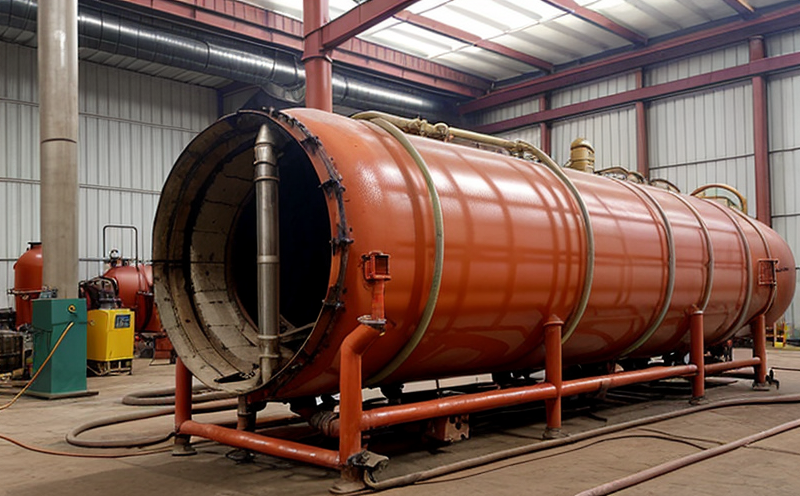Boiler fire tube inspection
The boiler fire tube inspection is a critical procedure aimed at ensuring the integrity and safety of boilers that are integral to various industrial processes. Fire tubes in boilers serve as heat exchangers, transferring heat from the combustion chamber to water to produce steam or hot water. Over time, these tubes can experience wear, corrosion, scaling, and other forms of degradation due to harsh operating conditions.
Boilers are used extensively across sectors such as power generation, manufacturing, petrochemicals, and food processing industries. The importance of a robust inspection cannot be overstated, especially given the potential for catastrophic failure if these components deteriorate beyond safe operational limits. Failures in boilers can lead to severe accidents, environmental contamination, and significant financial losses.
According to international standards such as ISO 9715:2013, ASME Section IX, and EN 14048-1, fire tube inspections are conducted using various non-destructive testing (NDT) methods including ultrasonic testing (UT), liquid penetrant inspection (LPI), and magnetic particle inspection (MPI). These methods help assess the thickness of the tubes, detect cracks, and identify any other anomalies.
The process begins with a thorough visual examination, followed by the application of appropriate NDT techniques. During this phase, it is crucial to ensure that all areas are inspected for potential defects. Any findings are documented meticulously to form an accurate assessment of the boiler's current state. This data forms the basis for any necessary repairs or replacements.
A well-executed fire tube inspection not only ensures compliance with regulatory requirements but also enhances operational efficiency by preventing unplanned downtime and costly repairs. By maintaining these critical components, industries can extend their asset life, reduce maintenance costs, and ensure a safer working environment for all personnel involved in boiler operations.
Why It Matters
The boiler fire tube inspection is not just a routine task; it's a vital component of any safety management plan. The risks associated with operating boilers are well-documented, and the consequences of neglecting proper inspections can be severe. Here’s why this inspection matters:
Prevents catastrophic failure: A single incident of boiler failure can lead to significant loss of life, extensive property damage, and environmental contamination.
Ensures compliance: Regular inspections are a legal requirement in many countries, ensuring adherence to safety regulations.
Reduces downtime: By identifying issues early on, inspections help prevent the need for emergency repairs that can disrupt production schedules.
Increases efficiency: Well-maintained boilers operate more efficiently, leading to lower energy costs and improved performance.
The importance of these inspections cannot be overstated. They are a cornerstone in maintaining safe and efficient boiler operations, contributing significantly to the overall reliability of industrial processes.
Benefits
The benefits of a comprehensive boiler fire tube inspection extend far beyond immediate safety concerns. Here’s how it positively impacts various aspects:
Enhanced Safety: By identifying and rectifying potential hazards, inspections help ensure the safe operation of boilers.
Legal Compliance: Regular inspections are a requirement in most jurisdictions, ensuring compliance with relevant regulations.
Cost Savings: Preventing accidents and unplanned downtime through early detection of issues significantly reduces operational costs.
Increased Efficiency: Well-maintained boilers operate more efficiently, leading to lower energy consumption and improved performance.
Extended Asset Life: Routine inspections help in the timely replacement or repair of components before they reach their end-of-life.
In summary, a boiler fire tube inspection is an essential component of any comprehensive safety and maintenance strategy. It plays a pivotal role in safeguarding both personnel and property while enhancing overall operational efficiency.
Quality and Reliability Assurance
The quality and reliability assurance processes associated with boiler fire tube inspections are stringent and follow international standards such as ISO 9715:2013, ASME Section IX, and EN 14048-1. These standards provide a framework for ensuring that the inspection process is conducted in a standardized and reliable manner.
The first step involves conducting a thorough visual examination of the fire tubes to identify any obvious defects or signs of wear. Following this, non-destructive testing methods are employed to assess the internal integrity of the tubes. The chosen methods depend on the specific requirements and conditions of the boiler in question.
Data collected during these inspections is meticulously recorded and analyzed. Any anomalies detected are documented with detailed reports that serve as a reference for any subsequent repairs or replacements. These reports also form part of the ongoing quality management system, contributing to continuous improvement efforts within the organization.
By adhering to these rigorous processes and standards, organizations can ensure that their boilers remain in optimal condition, thereby enhancing both safety and operational reliability. This commitment to excellence not only protects valuable assets but also contributes to a safer working environment for all personnel involved.





